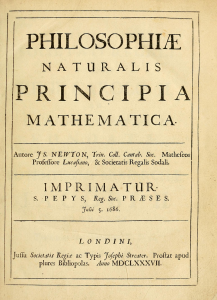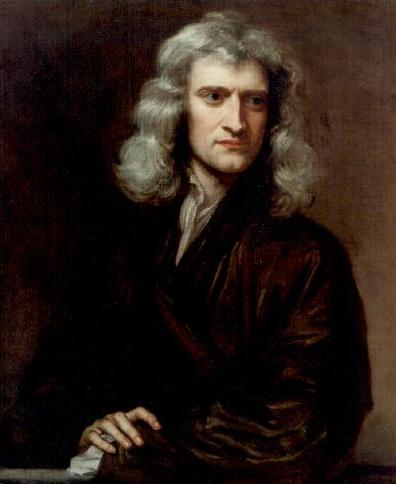By Wes O’Donnell
Managing Editor of In Military, InCyberDefense and In Space News.
On July 6, 1687, Sir Isaac Newton published his Philosophiæ Naturalis Principia Mathematica (Latin for Mathematical Principles of Natural Philosophy), often referred to as simply the Principia.
‘This most beautiful system of the sun, planets, and comets, could only proceed from the counsel and dominion of an intelligent and powerful Being.’
Sir Isaac Newton published the influential and important work ‘The Principia’ #OnThisDay in 1687: https://t.co/tvhaeUNg2K pic.twitter.com/dkKkY43oEV
— National Biography (@odnb) July 5, 2020
This three-volume set, written in Latin, formed the basis for Newton’s laws of motion, the foundation of classical mechanics, the law of universal gravitation, and a derivation of Kepler’s laws of planetary motion.
The Principia is considered one of the most important works in the history of science. In formulating his physical theories, Newton developed and used mathematical methods now included in the field of calculus.
Among many other ideas, Newton’s Principia is famous for estimating the relative masses of the Earth, Sun and other known planets. In addition, it explains the precession of the equinoxes as an effect of the gravitational attraction of the moon on the Earth’s equatorial bulge.
Principia also explains how the Earth’s marine tides are the result of gravitational interactions among the Earth, moon and Sun.
Ultimately, Principia deals primarily with massive bodies in motion.
With Nicolaus Copernicus’s De revolutionibus orbium coelestium (On the revolutions of the heavenly spheres) published in 1543, Johannes Kepler’s Astronomia nova (A new astronomy) in 1609, and Rene Descartes’ 1644 publication Principia philosophiae (Principles of philosophy), Newton studied and, in some cases, used these books as secondary sources to usher in the beginnings of the scientific revolution in Europe.
Currently, Cambridge University Library has Newton’s own copy of the first edition, with handwritten notes for the second edition, and the Huntington Library in San Marino, California, owns Isaac Newton’s personal copy, with annotations in Newton’s own hand.
Sir Isaac Newton (1643–1727) author of the Principia. Public domain.
Get started on your Space Studies Degree at American Military University. |



Comments are closed.